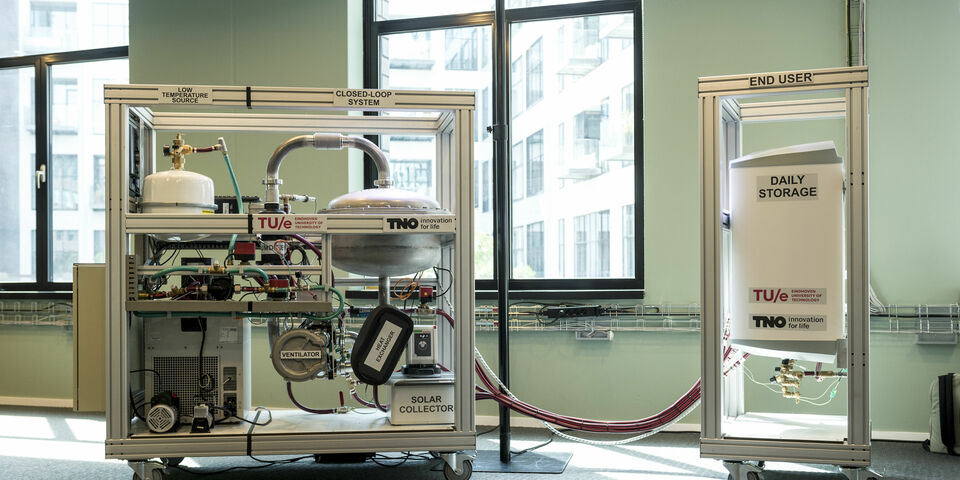Innovative heat battery gets 7 million euro grant from EU
TU/e and Dutch research organization TNO have received a seven million euro grant from the EU Horizon programme for the further development of their heat battery. The innovative battery uses thermochemical material to store renewable energy in an inexpensive and lossless way. This helps to bridge longer periods, especially during winter months, when there is less or no energy from sun, wind or other sustainable sources. A European consortium led by both knowledge institutions will use the grant to accelerate the development of the battery into a compact and user-ready device.
The heat battery uses two basic ingredients: water vapour and salt. When these components are brought together, the water binds to the salt, creating new salt crystals. This process releases heat. This process is reversible. By bringing heat back into the system, water and salt are separated. As long as water and salt are separate, energy is stored without loss. Once you bring the two back together again, the stored heat will again be released. The heat battery is stable, works without loss of energy and will last at least 20 years if used correctly.
Project leader Olaf Adan, who works for TU/e and TNO, says the system is both ingenious and simple. “This simplicity makes it possible to keep the heat battery affordable, also for blocks of houses or even for individual homes. The European grant will enable us to speed up the development of the heat battery into a commercial product that fully answers to end user demands. The cost price will be below that of state of the art electric storage systems, with better performance. With a refrigerator-sized battery, a typical modern family can take a hot shower for two weeks."
Pilots
The consortium will develop the heat battery into a compact form that is suitable for the home consumer. The device fits in the limited space available in the home and seamlessly connects to various energy systems, such as the electricity grid and heat networks, but also heat pumps and solar panels. Because user-friendliness is a key priority, domestic users will be directly involved in the development process. Within two years, the cities of Eindhoven, Gdansk (Poland) and Nice (France) will start a number of pilot projects in existing homes. These are locations with a great diversity in climate, housing and use.
In addition to TNO, TU Eindhoven, materials producer Caldic, the municipality of Eindhoven and housing corporation Trudo, the HEAT-INSYDE consortium consists of international partners from Belgium, France, Germany, Switzerland and Poland.
Also read the article Cursor published a few years ago about 'salt for heating'.



Discussion